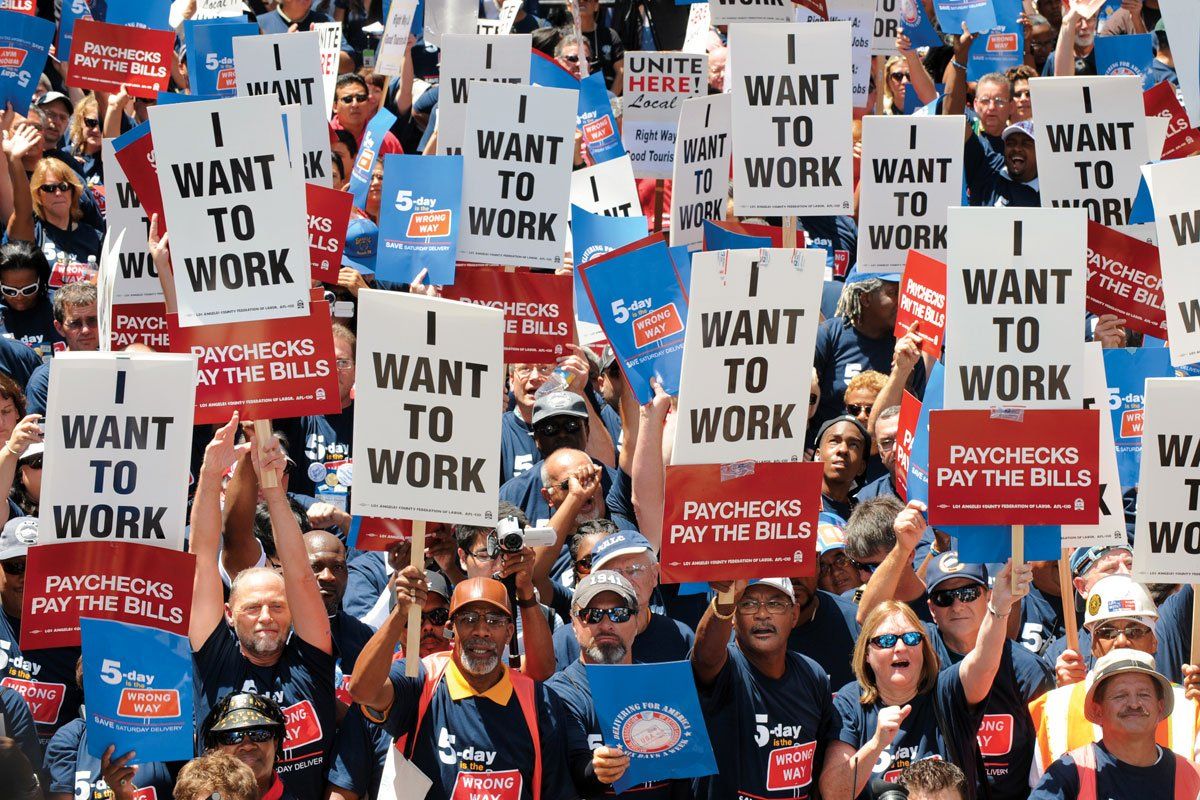
It is becoming clear that the Great Recession has left a deep and possibly lasting scar on the American psyche. From CEOs to ordinary families, we are a nation that is more cautious, more fearful, and more risk-averse. This widespread and—so far—indestructible anxiety has hobbled the recovery and helps explain the slow pace of job creation. The economy's revival depends in part on risk taking, but risk taking is in eclipse.
There is a wall of worry whose cause transcends the recession's severity. We now fear not only what we know but also what we don't. Things happened that were both unpredicted and unimagined: the collapse of major banks (Lehman Brothers, Wachovia); the near death of General Motors; the government's titanic economic rescue efforts—TARP, the Federal Reserve's massive lending, the gargantuan budget deficits.
It's possible, of course, to exaggerate pessimism and underrate Americans' traditional hopefulness. Even the weakened U.S. economy produces almost $15 trillion of goods and services a year and employs 139 million people. Still, the mass uncertainty and fright remain undeniable.

Americans are not merely reducing debts. They're erecting protections against unanticipated adversity. For a record 23rd straight month, more than half of U.S. households expect no income gains in the next year, reports the University of Michigan's latest consumer survey. Only a quarter forecast higher incomes. For many households, the recession's "primary lesson," notes survey director Richard Curtin, "was that the only sure source of financial security was their own savings." In the bubble years, people borrowed because they felt they could repay; now they don't borrow because they worry they can't.
Those with work can see the devastating impact of being without. Two fifths of the unemployed have been jobless for more than six months. In the 2001 recession, payroll jobs dropped 2.7 million, and it took four years for the economy to recover the lost jobs, says Joseph Seneca of Rutgers University. The loss in the present slump was 8.4 million, and only 1 million have returned. It will be much, much longer before all do. With young people entering the workforce, the unemployment rate may not fall below 6 percent for four or five years, Fed chairman Ben Bernanke has warned.
CEOs share the risk aversion. Appearing on CNBC, former Fed chairman Alan Greenspan noted that companies are hoarding cash. Firms usually invest 100 percent or more of cash flow (profits plus depreciation) in new buildings, equipment, and software. The ratio dips during recessions, but Greenspan calculates it's now below 80 percent—the lowest since at least 1952. Companies prefer to repay debt, buy back stock, or build reserves against a crisis. Another sign of caution: half of new jobs are in "temporary help" agencies. Firms are resisting hiring full-time workers.
All this may seem a prudent reaction to the follies that sparked the financial crisis. But where does prudence stop and paranoia start?
The economics of mood swings are obscure, even to economists. If Americans are blue today, might they become rosy tomorrow? A continued recovery could prove reassuring. As confidence builds, the economy could spontaneously and surprisingly accelerate. On the other hand, deep-seated anxieties might defy easy remediation. The serial efforts at economic stimulus (example: last week's proposed cut in payroll taxes) could prove ineffective. If they telegraph government leaders' desperation, they could deepen the public's own doubts. Consumers and business managers might become more cautious.
The Great Recession's most worrisome legacy could be this common allergy toward risk taking. Having underestimated risks in the bubble years, we may be overestimating them now. One warning is the retreat of venture capital—a big source of money for high-tech startups. In 2009, venture-capital funds raised less than half what they had in 2007, and inflows for 2010 are running 27 percent below 2009 levels. The institutions (pensions, university endowments, insurance companies) and wealthy individuals that provide venture capital have less money to invest and are less willing to commit it to chancy firms.
Growth companies are being choked. The flight from risk is reinforced by an aging society—are 55-year-olds more daring than 35-year-olds?—and new government regulations inspired by the last financial crisis. The cautionary bias is an understandable reaction to the past, but it could burden the future.
Uncommon Knowledge
Newsweek is committed to challenging conventional wisdom and finding connections in the search for common ground.
Newsweek is committed to challenging conventional wisdom and finding connections in the search for common ground.





